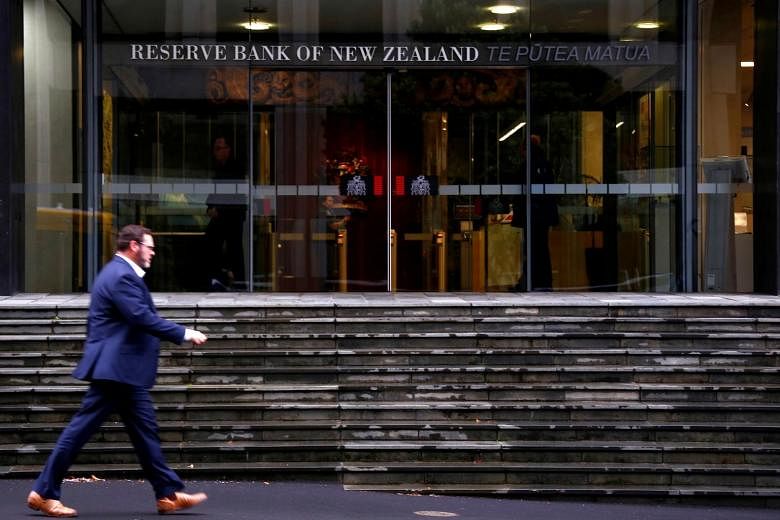WELLINGTON (REUTERS) - New Zealand's central bank cut its benchmark interest rate for the first time in two-and-a-half years on Wednesday (May 8) as it looks to support a cooling economy and counter global uncertainties, sending the country's currency to a six-month low.
The Reserve Bank of New Zealand cut the official cash rate (OCR) by 25 basis point to a record low of 1.5 per cent, a move that followed its shift in March to an explicitly dovish footing.
"The Monetary Policy Committee decided a lower OCR is necessary to support the outlook for employment and inflation consistent with its policy remit," the RBNZ's monetary policy committee, said in a statement accompanying its rates decision.
"Global economic growth has slowed since 2018, easing demand for New Zealand's goods and services."
RBNZ projections show rates are expected to be steady for the rest of the year. Inflationary pressure is projected to rise only slowly, the central bank said.
The New Zealand dollar tumbled to a six-month low of US$0.6525 from US$0.6600 after the announcement.
The OCR had been unchanged since November 2016 and a small majority of economists in a Reuters poll had forecast the RBNZ would lower interest rates on Wednesday.
Expectations for the cut had grown in recent months, as New Zealand struggles with weak economic momentum, slowing global growth and inflation falling further below its target.
Softer global economic conditions had contributed to the bank's recent shift to a dovish tone, Orr told Reuters in an interview last month.
Other central banks in the region have also swung to accommodative footings.
In neighbouring Australia, the central bank held rates at all-time lows on Tuesday but signaled an easing in the future if the unemployment rate didn't fall, while Malaysia cut its key interest rate.
This was the first cash rate review by the RBNZ's newly-formed monetary policy committee, in a transfer of the decision-making power from the governor alone.
RBNZ said the committee reached a decision by consensus.
"Given this employment and inflation outlook, a lower OCR now is most consistent with achieving our objectives and provides a more balanced outlook for interest rates," the statement said.
New Zealand's labour figures last week showed tepid wage growth, and employment falling, while business sentiment has also remained gloomy, all adding to arguments for a rate cut.

